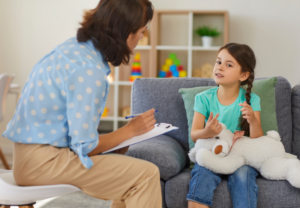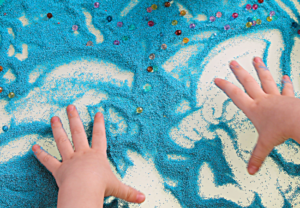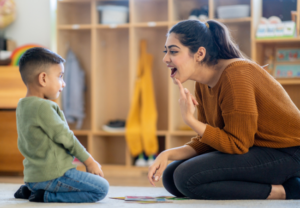Blog







As a parent, your child’s mental health is one of your highest priorities. Whether your child is struggling with anxiety, behavioural challenges, or emotional regulation, finding the right support is essential. But many parents ask: “How do I find the best child psychologist?”, “How do I choose the best therapy for my child?” The process can feel overwhelming, but with the right guidance and information rooted in evidence-based practice, you can confidently make the best decision for your family. In this article, we aim to target these commonly asked questions to help you make an informed and thoughtful decision in finding the right care for your child.

Here’s what you should know as you search for the right child psychologist.
When parents ask “What is the best therapy for my child?”, it’s important to know there’s no one-size-fits-all answer. However, some approaches consistently stand out in research for helping children and teens manage emotional, behavioural, and social challenges. At our clinic, we specialize in evidence-based treatments, including:
CBT is one of the most researched and widely used therapies for children and adolescents. It helps kids understand how their thoughts, feelings, and behaviours are connected. In CBT, children learn practical strategies to:
– Identify unhelpful thoughts (like “I can’t do anything right”)
– Challenge and reframe those thoughts
– Develop coping skills to manage anxiety, low mood, fears, and stress
– Improve problem-solving and emotional regulation
CBT is especially helpful for children dealing with:
– Anxiety (such as social anxiety, phobias, or separation anxiety)
– Depression
– Obsessive-compulsive behaviours
– School-related stress
– Behavioural challenges
CBT gives kids concrete tools they can use in daily life, empowering them to face difficult situations with more confidence.
Younger children often express themselves better through play than through words. Play therapy uses toys, games, art, and storytelling to help children communicate feelings, process experiences, and build emotional resilience in a safe and supportive environment. Play can also be a tool to establishing comfort and safety in the therapy space for children.
Play therapy is particularly helpful for children who are:
– Adjusting to big life changes (like divorce or a new sibling)
– Experiencing grief or loss
– Showing signs of trauma
– Struggling with emotional regulation
– Through play, children work through complex emotions and learn healthier ways to express themselves.
3) Socio-Emotional Approaches
Many children benefit from therapies focused on strengthening emotional intelligence, social skills, and relationships. Socio-emotional approaches help children:
– Recognize and name their feelings
– Build empathy and perspective-taking
– Develop stronger communication skills
– Navigate friendships and peer conflicts
– Improve self-awareness and self-esteem
These approaches are especially helpful for children who have difficulties with friendships, teamwork, or emotional regulation, and they can be integrated into other therapies like CBT or play therapy.
Adapted from its use with teens and adults, DBT teaches essential skills in four key areas:
– Mindfulness – Staying present and focused
– Distress Tolerance – Managing overwhelming feelings without making situations worse
– Emotion Regulation – Understanding and managing strong emotions
– Interpersonal Effectiveness – Building healthy relationships and setting boundaries
DBT is particularly effective for children and teens who struggle with intense emotions, mood swings, impulsivity, or self-destructive behaviours. It provides them with tools to handle stress and conflict more calmly and thoughtfully.
Of course, considering the unique needs of the child is important in tailoring a treatment approach that best matches your child’s needs. Sometimes these approaches are integrated in a way that meets the diverse needs of a child or adolescent.

When searching for child therapy and counselling in Toronto, Ontario, many parents wonder, “How do I choose the best child therapy and therapist?” Beyond credentials and experience, one of the most important factors is how the therapist connects with your child. For therapy to be truly effective, your child must feel safe, understood, and comfortable.
Children can only open up and do the important work of therapy when they feel emotionally secure. The best child psychologists are skilled at building rapport in ways that are playful, warm, and adapted to each child’s age, personality, and needs. This might mean using humor, creative play, art, or simply meeting the child exactly where they are without pressure.
A great child therapist knows how to:
– Create a safe, welcoming environment where your child feels accepted and not judged.
– Modify their communication style to match your child’s developmental level, whether that’s through storytelling with a younger child or thoughtful conversation with a teen.
– Read subtle cues to understand when a child is feeling overwhelmed, nervous, or unsure—and gently guide them through those feelings.
– Knowledge about culture, identity and how social factors should be considered when treating a child.
When your child feels seen, heard, and respected in the therapeutic space, they’re far more likely to engage in the process and experience meaningful change.
Children don’t exist in isolation—they are part of families, schools, and social networks. That’s why the best child therapy often involves more than just individual sessions. A therapist should be willing and able to:
– Collaborate with parents to share insights, teach strategies, and support progress at home.
– Invite siblings or other caregivers into the therapeutic process if family dynamics are playing a role in the child’s challenges.
– Coordinate with schools or other professionals, when appropriate, to create a consistent support system around the child.
Involving families in therapy helps create lasting change because it empowers the people who spend the most time with the child to reinforce healthy coping skills and emotional growth in daily life.

When choosing a psychologist for your child, consider these key qualities:
✔️ Specialized training and experience in working with children and adolescents.
✔️ Expertise in psychotherapy for children and adolescents’ different types, such as CBT, play therapy, and DBT.
✔️ A demonstrated ability to build strong, trusting relationships with children of all ages.
✔️ Flexibility in communication style to meet your child’s unique needs.
✔️ A collaborative approach that involves parents and, when needed, other family members.
At the Momenta Clinic, our team is dedicated to creating a compassionate, child-centered environment while delivering psychotherapy services for children rooted in the latest research. We focus on making both children and parents feel supported every step of the way.
Our child psychology services are based in Toronto, Ontario. At the Momenta Clinic, we provide specialized psychotherapy services for children, we aim to provide individualized care that creates lasting and meaningful change.